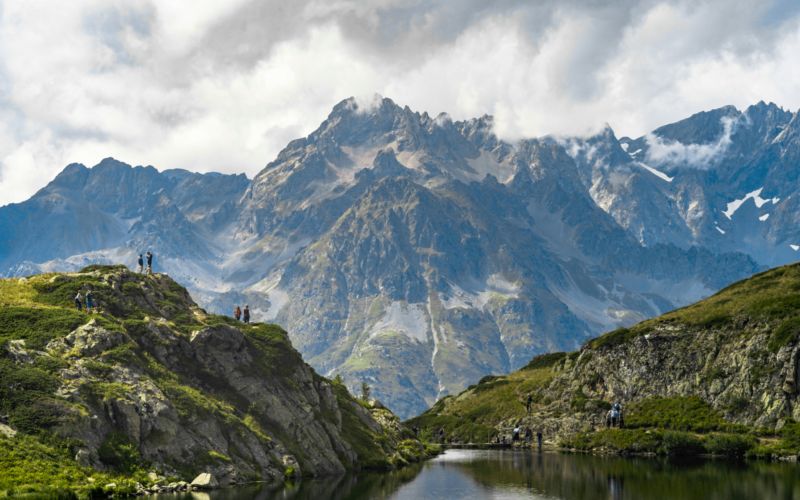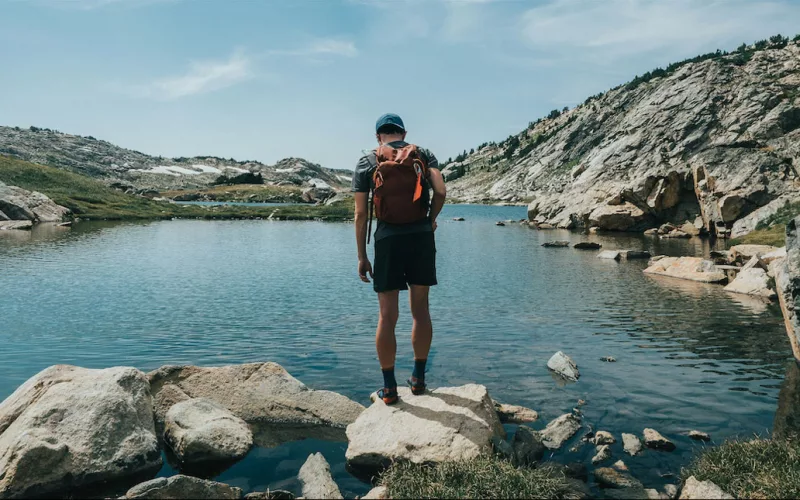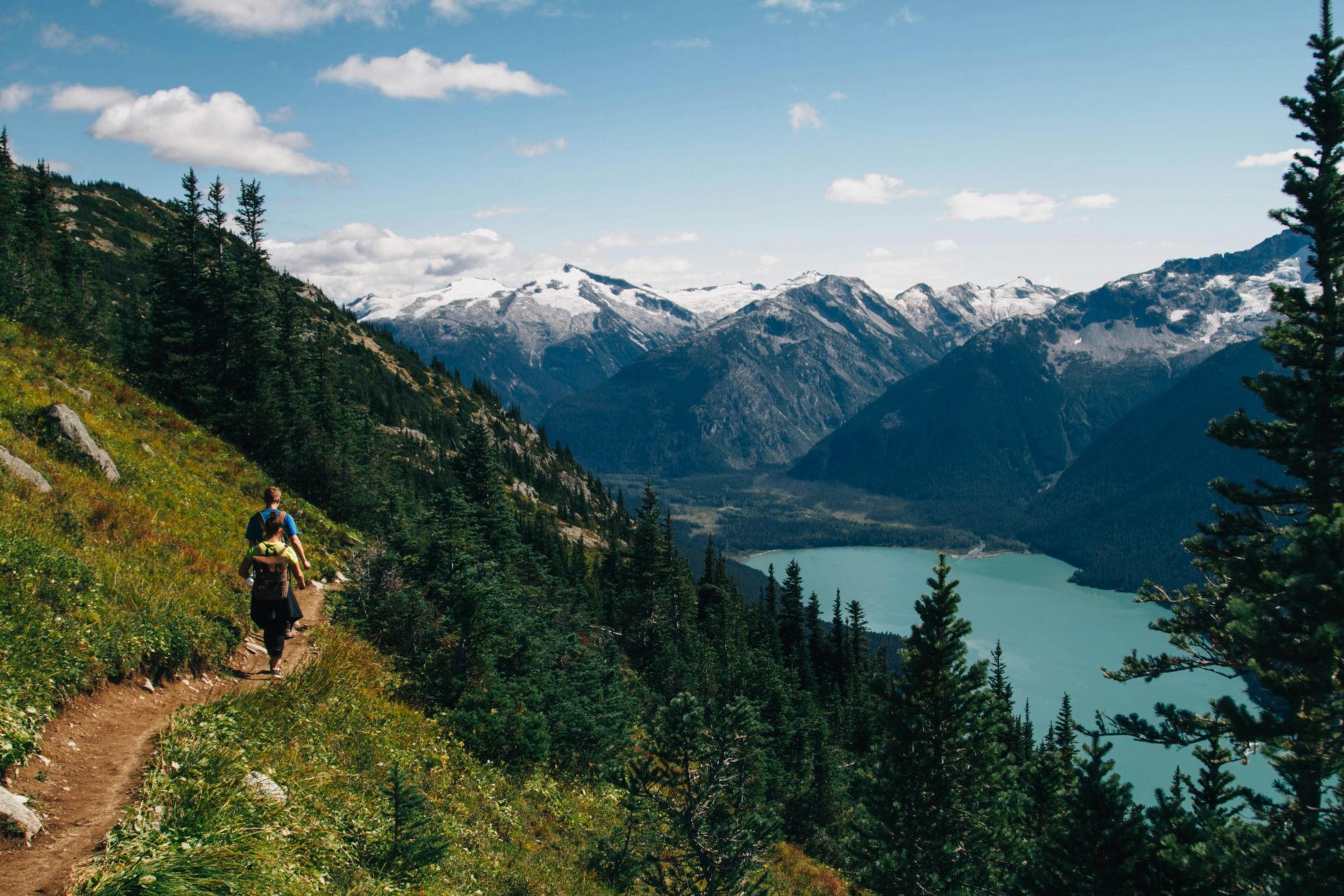The rise of year-round tourism goes hand in hand with outdoor activities, but these can weaken mountain ecosystems. How are mountain regions tackling these ecological challenges? What eco-friendly practices are being adopted to preserve nature and ensure a livable, waste-free, breathable earth for our children?
Eco-Responsible Innovation for a Sustainable Future in the mountains

©Mountain Planet 2024
Today, sustainable transport and soft mobility are prevalent in most mountain resorts. Electric or hybrid shuttles transport tourists from villages and valleys, and the development of valley lifts helps reduce the carbon footprint of mountain travel.
READ THE ARTICLE ON TOURISM DIVERSIFICATION IN MOUNTAIN REGIONS.
But how can we continue to attract visitors during the summer holidays while ensuring that sports and recreational activities minimize their ecological impact on mountain environments?
One primary consequence of summer tourism is that human activity can accelerate soil erosion and trail degradation, leading to vegetation destruction and root system disruption, which are crucial for soil stability. This also puts pressure on wildlife and flora — as outdoor activities, especially in less frequented areas, can disturb habitats of sensitive or even protected species — and human presence, including children’s shouts, can frighten animals.
How Can Summer activities be adapted to ecological challenges ?
Various ideas support sustainable development, such as ecological trail design. In addition to marking trails, mountain professionals are working on less invasive trail construction techniques, using natural materials like stone or wood from local species (fir or spruce) to stabilize paths. Installing footbridges also helps prevent trampling on fragile vegetation. Ecological engineering techniques, such as reforestation and soil stabilization, also help prevent erosion.
Eco-tourism and low-impact activities are part of responsible mountain vacations. In an environmentally respectful approach, numerous eco-friendly ideas, such as guided nature hikes, wildlife observation, or biodiversity workshops, are emerging to raise awareness among tourists, both children and adults, about minimizing their negative impact on the environment.
Read the article on eco-tourism in the mountains.
Waste Management in the Mountains: An Environmental Priority
Another priority for resorts in preserving the environment is optimizing waste management, as waste volume is directly linked to the presence and increased activity of tourists. Without proper oversight, this activity can degrade landscapes and pollute local waterways. Among the many citizen-driven ecological actions implemented, the Mountain Riders initiative deserves recognition, having received the innovation award at the 50th Mountain Planet trade show in the biodiversity and sustainable development category.

©Mountain Riders
Adopt’1 Spot is an eco-responsible collaborative program launched in March 2023 and endorsed by the Ministry of Ecological Transition. By “adopting a spot,” local communities, economic players, ski area managers, brands and businesses, associations, schools, etc., commit to:
- Conducting two waste cleanups per year,
- In the same area,
- For three years,
- With the same number of volunteers.
This program allows for tracking the evolution of wild pollution and defining a waste reduction strategy at the source. This sustainable approach aligns with the national objective set by the Zero Wild Waste Mountain Charter.
Technology serving eco-responsibility
Mountain resort activities primarily concentrate on weekends and holidays. Today, software, applications, and platforms enable better management of visitor flows during vacations to avoid overcrowding in sensitive areas. Reservation systems can also be valuable allies in limiting the number of visitors on certain trails or popular sites. Mobile applications, for instance, can guide vacationers to less crowded areas, better distributing the tourist pressure on nature. Others are designed to educate tourists about the ecological impacts of their actions on the environment.
Watch the panel discussion: The New Superpowers of Data.
During summer family vacations in the mountains, activities like hiking, mountain biking, climbing, and water sports in France’s lakes and rivers have an undeniable impact on the environment. These summer activities in the mountains certainly present significant ecological challenges for the conservation of mountain ecosystems. However, mountain professionals are not lacking in innovative ideas to propose sustainable solutions. These initiatives aim to balance nature conservation with the economic development of resorts, all while promoting more responsible and environmentally respectful tourism.
a lire également
Environment

26 July 2024
Ecotourism in the Mountains: Balancing Tourist Appeal and Biodiversity Protection
For mountain resorts, ecotourism presents both a challenge and an opportunity. It’s about addressing climate change while preserving nature, biodiversity, and protected areas. The growth of summer tourism and non-ski ...
Environment

17 September 2024
How Are Mountain Resorts Responding to Climate Change?
Mountain resorts didn’t wait for the Avenir Montagnes Plan to address climate change. They have always taken a proactive stance to preserve their environmental assets. They have strengthened their sustainable ...
Tourism Diversification

27 May 2024
What kind of tourism diversification for mountain regions?
Mountain stakeholders are among the great witnesses to climate change. In the face of climate skeptics—37% of the population in France in 2023, according to Obs&’COP—the time has come to do ...


